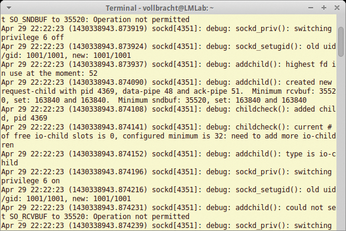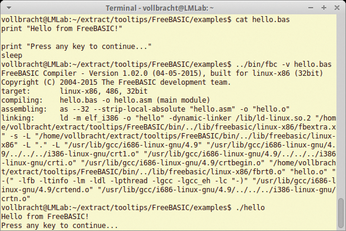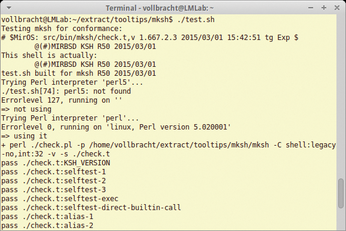Tool Tips
Dante 1.4.1
Free Socks Server
Source: https://www.inet.no/dante
License: BSD
Alternatives: sSocks, Anon Proxy

Many admins safeguard their networks with firewalls and only allow their users to access the Internet via a proxy server. If your users need to do more than just surf the web, standard proxy software is rarely sufficient. The application-level proxy Dante offers a solution by providing the Socks protocol to encapsulate multiple application protocols such as HTTP, FTP, and XMPP.
After building from the source code, you will find the two tools sockd and socksify on your disk. Sockd is the server, which waits for incoming connections on port 1080 by default when launched. In the /etc/sockd.conf setup file, you can define the internal and external interfaces and the default port, among other things. You can configure user authentication there, too.
Sockd optionally uses an integrated solution or cooperates with PAM. The daemon passes its logs to syslog or writes its own logfiles. The system administrator can define rules to specify which connections are permitted. To be able to use a proxy, users select Socks as a proxy variant and opt for version 5.
If a program does not support a Socks proxy, the socksify tool comes into play as a wrapper to set PRE_LOAD and start the program. Socksify uses the config file (/etc/socks.conf) to define which connections go to the Socks proxy.
4 Stars Dante provides a powerful Socks server (sockd) and a wrapper for clients (socksify). Good documentation with numerous examples helps you manage the configuration.
FreeBASIC 1.02
Basic Compiler
Source: http://www.freebasic.net
License: GPLv2
Alternatives: PC-BASIC, KBasic

In the 1970s and 1980s, the BASIC programming language was more or less the standard for all amateur developers and newcomers to programming. It was not used just for games; business applications were also developed in BASIC. If you still have source code from this time, you can use it with the FreeBASIC Compiler (FBC).
Although BASIC was an interpreted language in its early days, powerful compilers now exist to create fast binary code. FBC is available for both Linux and Windows, and it offers excellent support for Microsoft's QuickBASIC. The developers are convinced that most legacy QBasic programs will run without any changes. On Linux, fbc relies on the binutils libraries and can thus generate command-line programs and QBasic libraries.
However, the FreeBASIC compiler is not only useful for reactivating legacy software. If desired, you can implement new projects in QBasic. FBC supports the QBasic graphics libraries as well as SDL, OpenGL, and Cairo, with interfaces for Gtk, the Win API, MySQL, SQLite, PostgreSQL, and a generic ODBC. For network access, FBC can access the operating system sockets. The project website offers a beginners' course and tutorials.
4 Stars Thanks to the FreeBASIC Compiler, developers can revitalize legacy BASIC programs and new projects. The tool offers numerous interfaces to popular GUIs and exhaustive documentation.
MirBSD Korn Shell, R50
Fast Shell Alternative
Source: https://www.mirbsd.org/mksh.htm
License: MirOS
Alternatives: Ksh, Bash

Linux has no lack of shells, and the MirBSD Korn Shell (mksh) from the MirOS project sees another variant join the fray. The tool is a derivative of the OpenBSD Korn shell and is compatible with the original Korn shell, while being more conservative in its use of resources and faster than the popular Bash. The target group is users who are looking for a compact and fast shell who do not want to do without the familiar feature scope.
Mksh is suitable for both interactive use and automated script execution. For example, users can pass in a command string with a call by specifying the -c option. Additionally, the tool offers a restricted mode in which, for example, the command flow cannot leave the directory assigned on calling the shell, no environmental parameters can be modified, and the command output cannot be redirected. If desired, you can use the -T parameter in the call to assign a TTY device. I can't imagine more options for influencing the shell at start time through parameters.
Users can add customizations in the ~/.mkshrc file. A sample configuration for use as a template is not available in the source code archive. Users are advised to study the man page thoroughly, where they will find information on integrated functions and scripting elements such as loops or branches.
3 Stars As a lean shell alternative, mksh runs on a variety of platforms. The tool offers many familiar Bash features, and a good how-to shortens the learning curve.
« Previous 1 2
Buy this article as PDF
(incl. VAT)
